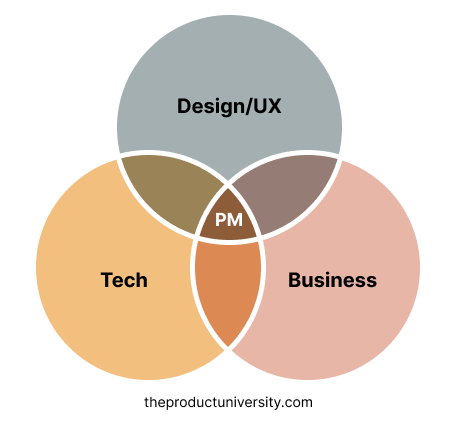Introduction to Product Management

What is Product Management
In simple terms, product management is the craft of managing a product. This process includes overseeing the development and lifecycle of a product from ideation to launch and upkeep.
Who is a Product Manager
A product manager is responsible for a product's success and must have a diverse set of skills and knowledge, including solid communication and interpersonal skills, strategic thinking and problem-solving abilities, customer focus, market and industry knowledge, and tech understanding. They must be able to balance the needs and wants of customers with the goals and resources of the organization and must be able to adapt to changing circumstances and customer needs.
The responsibilities of a PM involve
- Market research to identify gaps and explore opportunities
- Continually gathering and analyzing user feedback to understand their pain-points
- Ideating solutions & driving product development
- Defining the vision, roadmap, and strategy for their product
- Working with cross-functional teams to bring the product to market
- Measuring and analyzing product performance
A Product Manager works with cross-functional teams and acts as a bridge between Design/UX, Tech & Business

Role of a Product Manager
A PM plays a vital role in the success of a product and their responsibilities include:
Market Research: Market research can help product managers identify new market opportunities, such as untapped customer segments or emerging technologies and trends, and can provide insights into the competitive landscape. This can also help in understanding what features and capabilities customers value most in a product, as well as what pricing and packaging options are most attractive to them.
Gathering and analyzing user feedback: One of the primary responsibilities of product managers is to stay closely attuned to customer needs and feedback and to use that information to inform product development decisions. This can involve conducting customer research, gathering customer feedback through surveys and focus groups, and analyzing data from customer interactions with the product.
Driving product development: Product managers are the primary drivers of product development, working with the team to identify and prioritize new features and capabilities, and ensuring that they are delivered to the market in a timely and effective manner. This often involves working with engineering and design teams to define and refine requirements, and collaborating with marketing and sales teams to launch and promote the product.
Defining the product vision, roadmap, and strategy: Product managers are responsible for developing a clear and compelling vision for their products, and for defining the strategies and roadmaps that will help bring that vision to fruition. This involves understanding the needs and wants of customers, identifying market opportunities, and determining how the product fits into the overall business goals and objectives.
Collaborating with cross-functional teams: Product managers work closely with a variety of teams within an organization, including engineering, design, marketing, and sales. They are responsible for coordinating the efforts of these teams and ensuring that they are aligned with the product roadmap and strategy.
Measuring and analyzing product performance: Product managers are responsible for tracking the performance of their products, and for using that information to inform ongoing development and improvement efforts. This can involve analyzing metrics such as customer satisfaction, usage data, and revenue, and identifying areas for improvement.
Thanks for reading, hope that you find this content valuable!! Please do share this with your friends & colleagues and subscribe for more.
